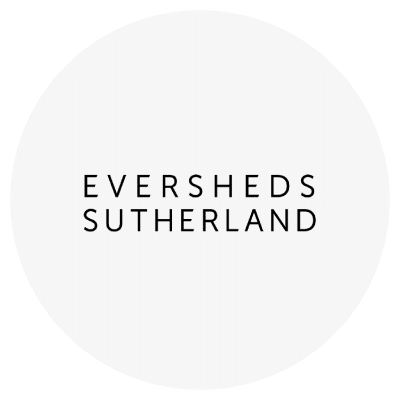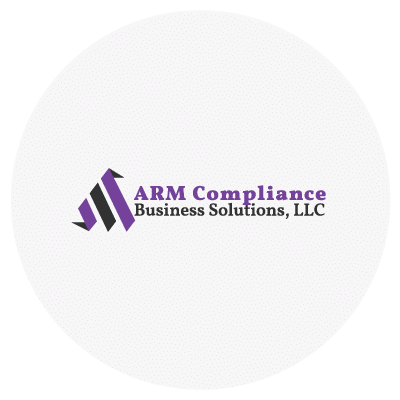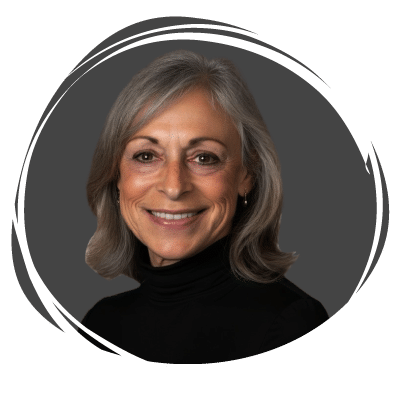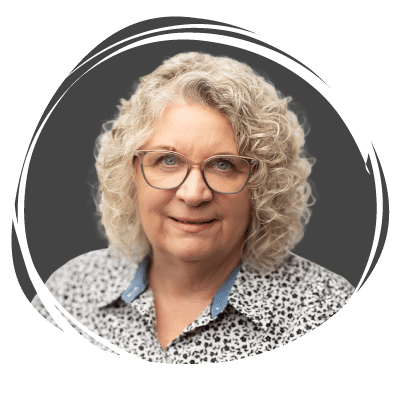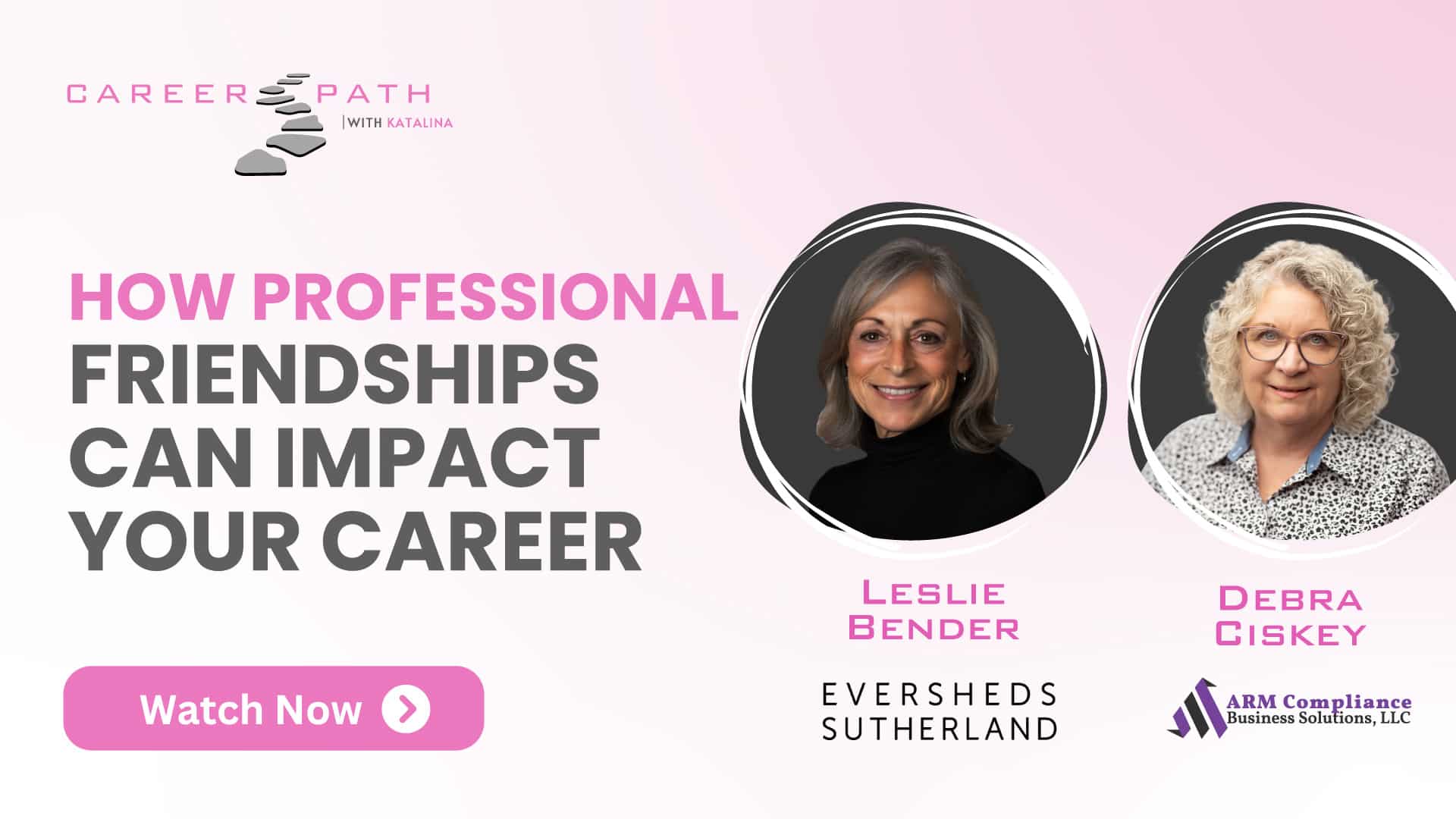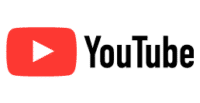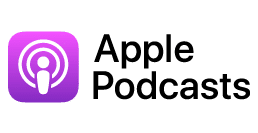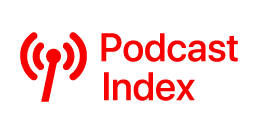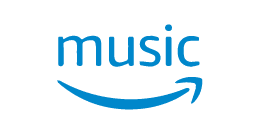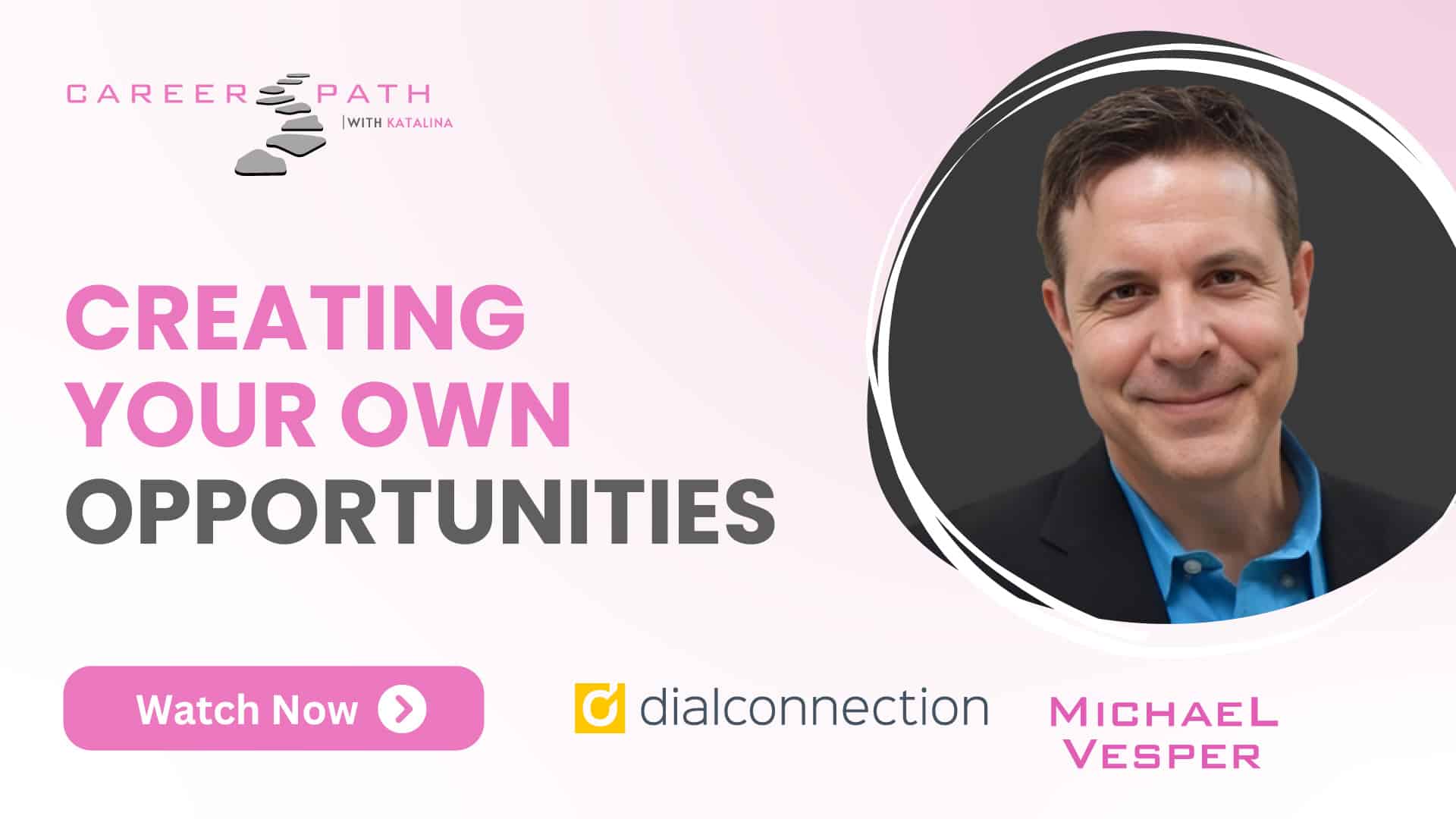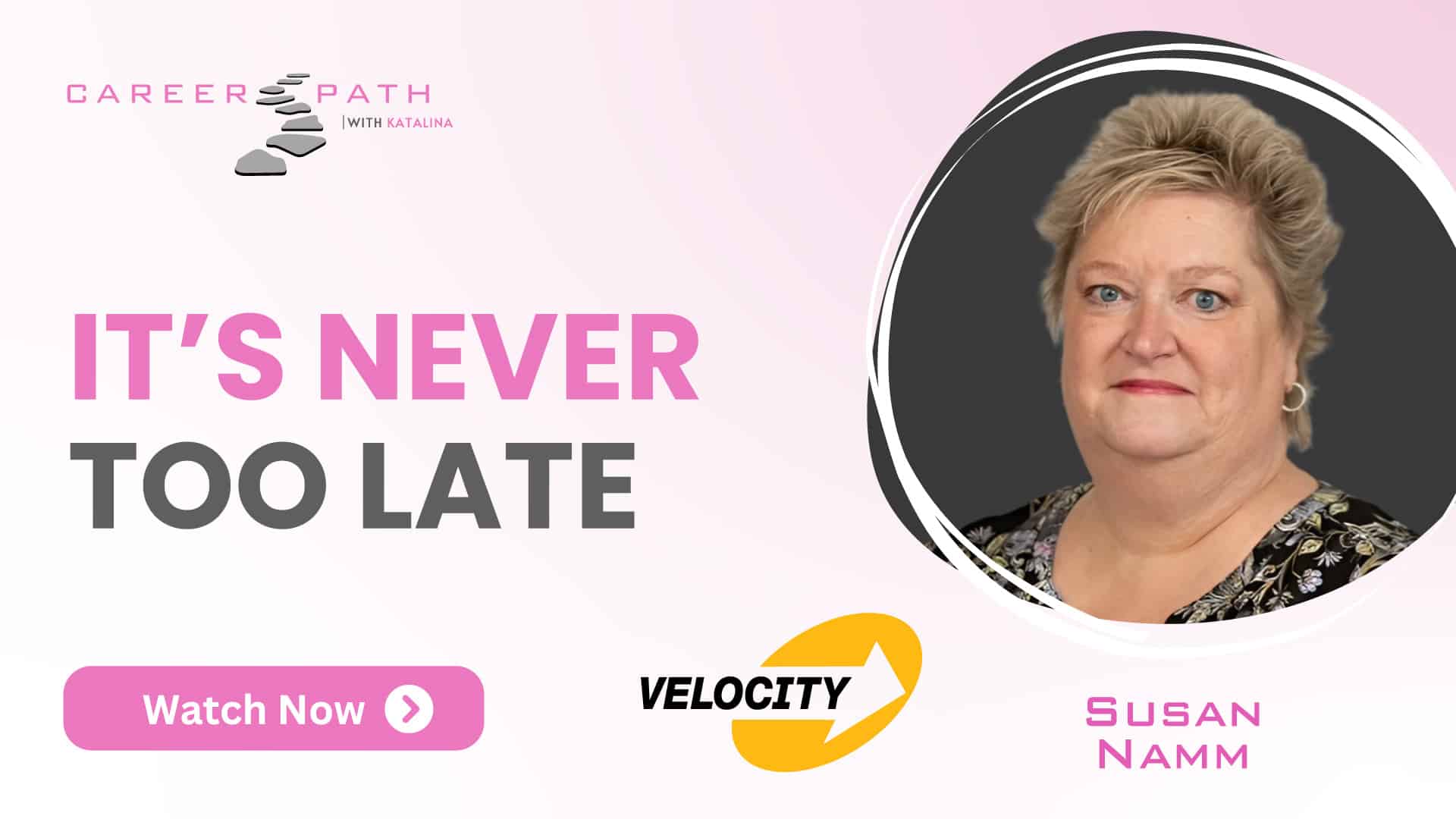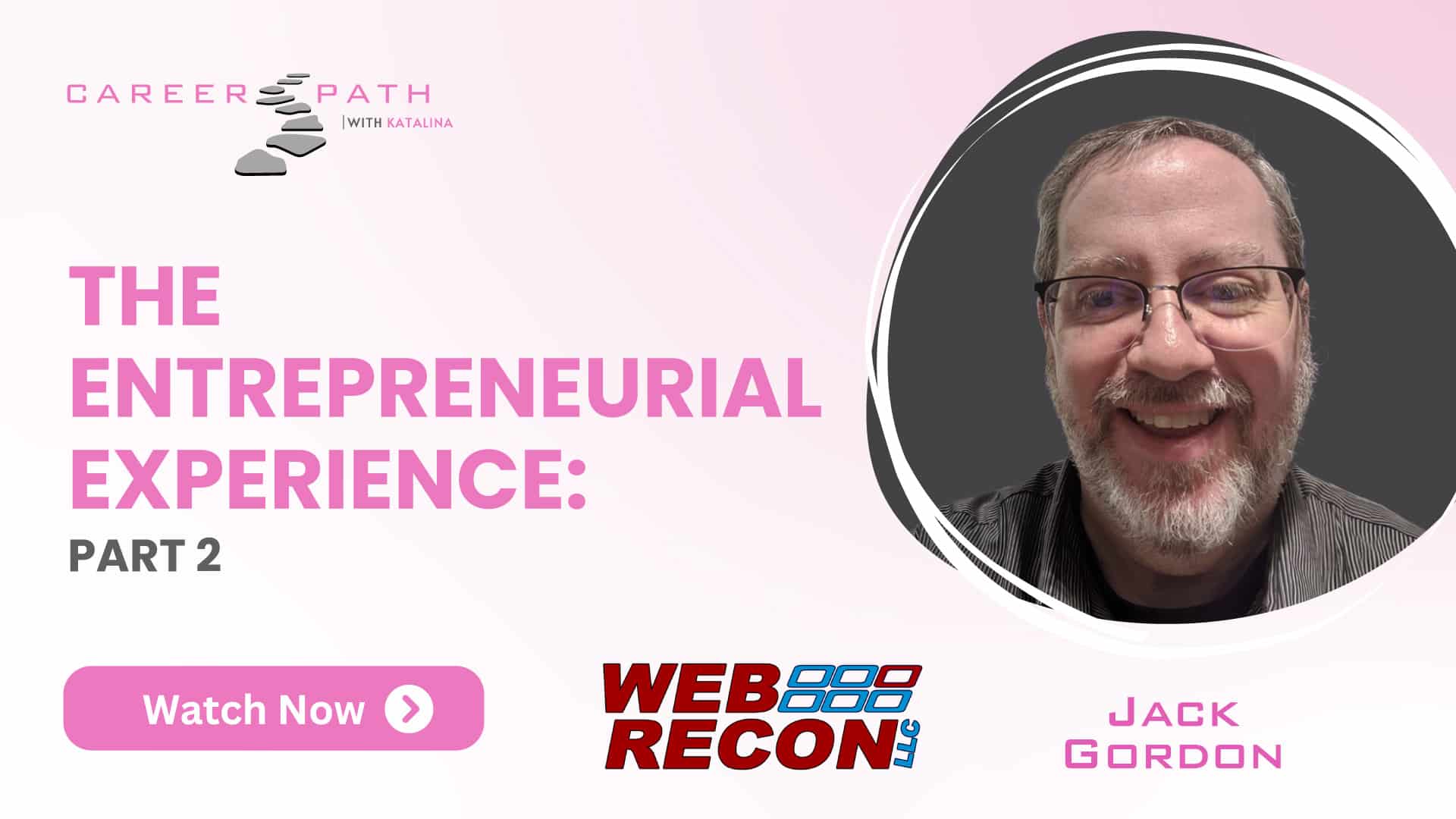Katalina Dawson (00:10)
Hello and welcome back to another episode of Career Path. I'm your host Katalina. And for the first time on the Career Path podcast, you may notice we have two guests. Why is that, you might wonder? Well, because today we are talking about how professional friendships can impact your career. So I have two amazing professional friends joining me here today. We've got the amazing Leslie Bender and the fantastic Deborah Siskie. Both of these ladies are training and compliance subject matter experts.
in the ARM industry and they have been experts for roughly 30 years. Leslie Bender is the senior counsel at Evershed Sutherland. She is also a former president of ACA International and a current certified instructor for ACA International. Deborah Siskie is the senior compliance advisor at ARM Compliance Business Solutions and a former board member of ACA International, as well as being a current committee member and certified instructor at ACA International.
Ladies, is such a pleasure to have you both on today. Thank you so much for joining me.
Debra Ciskey (01:12)
Thanks for watching.
Leslie Bender (01:12)
We are honored.
Thank you.
Katalina Dawson (01:15)
So I would love to start with getting to know you guys a little bit better by talking about who you are and how you got to where you are today. Leslie, would you mind kicking us off with a little bit about yourself?
Leslie Bender (01:26)
Sure, and I think it's such an interesting question. It seems sort of like an ordinary question. Who are you? And I think for myself and probably a lot of women in the industry, we do sometimes wonder who we are, right? You know, there are the people in the industry that we are seen to be and people in the industry we are not seen to be for various reasons. We grew up in a small town in Indiana or we're a lawyer and we happen to also
be passionate about consumer protection and collections and stuff like that. So it's such a great, if seemingly innocent question, who are we? And I think for myself, I got into this industry completely by accident. When I got out of law school, it was the first time in a long time since the depression really that banks and other financial institutions had non-performing assets.
And being the youngest person in the law firm, somebody had to figure out how to restructure loans and talk to people who were suffering hardships. And it just kind of was a seed that germinated for me. And I just was in the right place at the right time. And I love solving problems. And I love figuring out how to move the chess pieces and navigate regulations and try to save, you know, people's family businesses and things like that. So.
That's kind of how I got into it, but I love your question.
Katalina Dawson (02:53)
Thank you. Well, and I love the way you talk about problem solving. You talk about it so much like an opportunity, not an obstacle, and that's incredible. Debra, I'd love to hear your answer to the question.
Debra Ciskey (03:06)
Well, I kind of fell into the ARM industry as well, sort of like Leslie. I'm not a lawyer, so not that route. But I had moved to Minnesota with my husband right after college. He had a job. I didn't have a job. I answered an ad in the paper and ended up interviewing at ACA International, which at that time was called American Collectors Association. But that wasn't in the ad. was just kind of a job for like a
a librarian and assistant to, you know, a director. I'm like, okay, I, that sounds good to me. Cause I had worked in a library in college. I thought I could do that. Right. And so yes, at the time ACA did have a library and I was, when I was hired, I was organizing all that material and it was actually a lending library. send stuff to people by mail, but, um, I was working in the public affairs department. So I was working with legislation and
you know, creating a legislative conference every year and things like that. So I worked at ACA for 13 years. After my public affairs department work, I became the director of education at ACA and that was back in the eighties and we were creating exciting programs. We created the first computer based training programs that ACA offered at the time. And
And then I left to work at an agency and since then I've worked at three different collection agencies. And then at this point in my career, I'm consulting and doing work with ARM Compliance Business Solutions for collection agencies and others in the field. So, I've been around this industry since 1980. And I don't know if it'll ever end. I might die first, who knows? But I do love it because I've met
Katalina Dawson (04:48)
Thank you.
Debra Ciskey (04:50)
so many people and I'm meeting the children of the people that I worked with, you know, as they get into their family businesses and grow in them. And so that's really a very exciting part of what we get to do.
Katalina Dawson (05:03)
I love that. Thank you both for sharing that background about you. And Leslie, you're the first one to really draw on how special that question is. And I love that. Thank you. So to dive into our topic about How Professional Friendships Can Really Impact Your Career, I am dying to know how you two met. Debra, can I throw that question at you first?
Debra Ciskey (05:21)
Yeah, sure.
I knew about Leslie before I ever met her because she was working within the industry a little bit as an outsider at the time, maybe. But, you know, before she was like entrenched like she is today and working on HIPAA compliance and, know, in the collection industry, so many of us, you know, work with medical debt. had these medical providers that were our clients and HIPAA was like the big scary new thing.
Leslie was an expert already in HIPAA. So I met her at an ACA convention, I think it was 1999, and I actually kind of ran into her at the registration table and introduced ourselves and she said it was her first convention. And I didn't know until the end of the convention that she was there to win the most prestigious award that ACA gives to people, to members as a result of their contributions to the industry.
that year. It's like, had no idea that was going to happen. And she's so humble. She never said, Oh, I'm here to get an award. She never said that. I didn't know until it was over. And, you know, I don't think our paths crossed that much during the convention. I was busy with instructors and she wasn't an instructor yet because she was sort of new. And, you know, I had all other stuff. So our paths didn't cross much there, but over the years we started working together.
you know, creating compliance training and materials and teaching together. And she can tell some of that story too, but that's, that's how we, you know, our interests merged and we became friends. Yeah.
Katalina Dawson (06:51)
So what was the first time that you guys did start working together?
Debra Ciskey (06:55)
Well, gosh, I couldn't tell you the year, we started as, you know, as compliance became more prominently necessary in our industry. ACA needed, you know, more compliance related programs. created a credit collection compliance officer designation. And to get the designation, you had to fulfill education requirements. So we started working together with a couple of other ladies developing that curriculum.
Leslie Bender (07:21)
And it was accidental. It was completely accidental. Myself, Deborah, and two other women who are somewhat retired from the industry, or maybe we should say pursuing other passions, which make us insanely jealous. Each of the four of us had the same idea at the same time that what ACA needed
was to break down complex compliance and legal things in a way that companies that don't generally have a full array of in-house councils could really put them to practical use. And each of us had a different take on it. And we somehow ran into each other. And I think maybe Deborah knew some of the people. I knew Deborah and
Katalina Dawson (08:02)
Mm.
Leslie Bender (08:09)
We really wanted to make complexity and compliance digestible. And so we put our heads together. It took us about two years to write the curriculum. And originally the course for the credit and collection compliance series was a two and a half day in person, which was really exceeded our expectations. because people that attended after two and a half days of being with other people, you build a network.
and there are still relationships back to the day Deborah and I originally got to teach the class in Memphis at the Peabody Hotel where all the ducks are walking around. We had the most bizarre shoe box shaped room where we had 80 people in round tables bumping into each other in a narrow room. And it was just the most exciting.
compliance experience, I think, for us. And there are still people from that session that are still networked because of, I guess, just all the factors of putting together a non-lawyer who has a brilliant sense about adult learners and somebody who is just a nerd and loves reading all these regulations. Like, it just kind of worked. And our work ethics are very compatible.
We're both Aquarius's. We have some weird things in common that just, and since then we've written several courses together and gotten to teach them. It is just kind of like where you take two people that kind of are in their lane and can do it and stuff, and then you put them together and it exceeded our expectations for what we could
accomplish. it's one of our certainly one of my proudest things both that relationship with somebody that is both humbling, filled with trust and so affirming that really sends you on a trajectory that you really weren't ever you didn't ever expect for yourself. And
Katalina Dawson (10:19)
Yeah,
it seems like an incredible journey of growing through the differences and embracing the different perspectives that the two of you have. And then also playing as...
Debra Ciskey (10:30)
Definitely.
Katalina Dawson (10:33)
playing off of each other's strengths. And that makes me think a lot about my coworker, Leah, and she and I are great friends. I gotta give her a shout out on this because she has a professional friendship that has really impacted my career. And she and I have different things that we're good at, very different things. Like right before even getting on this, she was like, I never wanna be on camera ever. I pretty much have no problem being on camera, but that in and of itself is so powerful that we have these different strengths and we're
able to play off of it in order to balance each other out and grow through it. So it's incredible to have that and find that in somebody else.
Debra Ciskey (11:10)
Yeah, well, the one thing about that class we taught together that Leslie did tell you is she was really scheduled to teach with someone else. And the other instructor suffered a personal tragedy in her family and couldn't go at the very last minute. I mean, like two days before. And so they called me and said, are you available? Leslie needs a partner. I'm like, all right, I'll go. And so
Katalina Dawson (11:18)
No!
Debra Ciskey (11:34)
So I ended up going in. the one thing we didn't do that we always do because I have to prepare, I'm an overpreparer and Leslie is as well, but we didn't have the chance to get together beforehand and do it. just showed up. She knew I was coming, but I think it would be a very disconcerting situation for I think a lot of people, but we just had to go with the flow and we just sort of melded in that experience.
Leslie Bender (11:44)
Yeah.
Debra Ciskey (12:01)
You know, I had some ideas about how to make this two and a half day class interactive and engaging because otherwise it would bore people to death. It's very dry factual based material that some people geek out on that. And other people are like, my Lord, please be quiet. You know? And so we just, she was like open-minded about, okay, I want to do this activity. We're going to have people do this, this, and this line up across the back of the room on this piece of tape. And she's like,
Leslie Bender (12:27)
You
Debra Ciskey (12:28)
Why would we do that? I'm like,
let's just try it. it, you know, so it was a great opportunity for us to kind of exchange ideas and practices and just, it, it worked great. It was perfect.
Katalina Dawson (12:41)
You know,
being thrown...
Leslie Bender (12:42)
It was super energizing
because lawyers, spoiler alert, we're trained to train with black and white PowerPoint slides that look like too many ants came to a picnic on the slide where you can barely read, let alone digest. And then sometimes, God forbid, lawyers read the slides during their presentations. So imagine this is my professional
Katalina Dawson (13:06)
Mmm.
Leslie Bender (13:10)
whatever. had done some training for ACA on compliance topics because that is how I got introduced to ACA. And so I got who the audience was and that we weren't talking to a bunch of lawyers who went to Ivy League schools who wanted to knit out on case law and stuff. But I walk in, we've never trained together before.
and she's putting colored tape on the floor and asking grownups to get up and, you know, I will never forget the first thing was, you know, who traveled the furthest to get to this meeting today? And here's all these grownups, a lot of whom are lawyers, right? And they're all looking at each other and looking at each other and they part of her
magic was Debra wanted them to figure out how to work together to solve the problem of figuring out how to line up based that way. So you could see these personalities emerge of somebody saying, well, I'm going to ask somebody and I'm going to do this and I'm going to do that. And they did it, but it wasn't really about, oh, yay, you, you came from Oahu to Memphis. It was about the magic of getting them
you know, first thing in the morning to figure out how to solve this problem as a group. And it took off from there. And so every time the audience got to get up and do something on the tape, they're like, yes, yes. And people weren't checking their phones and people weren't checking their iPads and people weren't tippy tapping. Like it was that one way that Debra started the class. And that has so profoundly influenced
all the workshops or all the training or all the programs without fail. I always try to imagine a way in the first few minutes of a class to really engage people because I know that means they'll stay engaged. And that's just such an important lesson, whether it's a meeting, whether it's delivering bad news to a client or good news, there was such an important professional lesson in that moment that neither of us planned.
Katalina Dawson (15:15)
It is.
Yeah, I love it so much. And honestly, Deborah, what you came up with really reflects what Leslie said at the very beginning, how she was talking about those challenges and that problem solving as an opportunity. And that is just a perfect example of it becoming an opportunity and opening people up and teaching them at the beginning of the session that all the problem solving that's going to come out of this session.
is an opportunity. We're not sitting here to lecture at you and just throw problems at you that are obstacles. We're here to problem solve together. That is so cool. And to be thrown together in a situation like that and thrive really comes from that power of collaboration and being able to go with the flow together. And that makes me think of, I have a background in doing like acting and specifically I did a lot of improv.
Leslie Bender (16:21)
Mm-hmm.
Katalina Dawson (16:21)
And
in improv, there's a game, we do it in improv, but I also just did a career path episode with Kalila Lyons and she talked about the same thing. It's the idea of when you are working with somebody collaboratively.
You don't negate what they say when they say something instead of being like, you know, they bring up one idea and you go, no, I don't think that we should do something else. It's yes. And it's always bringing a yes. And to the table, which is exactly what you did, Leslie, Deborah pulled out the tape and you went, what? And then you went, you know what? Yes.
Leslie Bender (16:52)
Yeah. And I'm like, just tell me,
tell me why would we do this? Why would we want to do this? And I think you're exactly right that there is a humbling moment in any collaboration where you need to pause and be reflective of, wait a minute, I'm having a feeling about this. It feels uncomfortable to me. It's foreign to me. It's inexplicable to me.
Katalina Dawson (16:56)
Yeah!
Leslie Bender (17:18)
And before you write it off, to pause and train yourself to say, I really trust this person, this person. And I mean, now, after all these years, I would trust Deborah with my life, even my dogs. And, you know, that's big. And I think that when you trust the person you collaborate with,
Debra Ciskey (17:33)
You
Katalina Dawson (17:34)
That's big trust.
Leslie Bender (17:43)
even if you don't have as rich a relationship as we've developed over the years, it opens doors and it opens ways for you to see things that are just so learning. You just learn so much. And sometimes it's humbling. When we walked in that room and when we've walked in other rooms, we've been in packed rooms talking about how to do call quality evaluations, how to do risk assessments, how to prevent
Katalina Dawson (18:00)
Mm-hmm.
Leslie Bender (18:11)
unfair and deceptive acts and practices. I mean, I can just go on, but we only have 30 minutes, but you walk in the room and there are biases and prejudices that your adult learners have. Or when you go to a meeting that your adult clients have, who are also learners, let's face it, that are important to recognize. And I have seen
you know, some of that play out in the beginning of webinars or new workshops we rolled out. Like I remember when we first rolled out a call listening and how, you know, recorded calls are a treasure trove for compliance. People looked at the two of us like you have no ops background. How would you two have any idea how to take call recordings and improve your company's return on investment?
based on that activity alone, which is kind of our premise. And I don't know, Deborah, if you remember, we taught that class in San Diego the first time. The room was packed and there were a lot of doubting Thomases in that room. And I don't mean Clarence Thomas, that's rabbit hole not to go into. by the end or somewhere in the middle, we couldn't get people to leave the room when we were done.
Debra Ciskey (19:31)
Yeah. Yeah, it was eye opening. You know, and we have to kind of get over that notion that because we work in compliance, we don't know how the company operates, you know, and I've worked in collection agencies. And so I've been on the ground there in training and compliance roles. haven't ever like run a collection floor. But that doesn't mean I don't know how it works. I mean, when you get into a position that we've both been in where you're writing policies.
Katalina Dawson (19:33)
Wow.
Debra Ciskey (19:57)
and procedures, you you can't just say, here it is, do it, because people need to know how to do it. You have to teach people how to do it. And that's kind of where compliance and training really their roads cross, you know, because we have to take these sort of intangible ideas and make them concrete, right? They're go from abstract to concrete. And the concrete is how do I do it? The policy says this, but
How do I make that operational? so, we've experienced that Leslie's worked in agencies as well. And so we both have that experience that we can draw on. it's, mean, we can sit all day and talk about how all that works and her experiences in mind. And some have been similar and some have been quite different, just depending on the specialties of the agencies, the verticals they work in, their size. mean, that makes a big difference because it's one thing like Leslie said earlier,
to work at an agency that has a general counsel and a compliance director and other people involved in compliance and to come from another agency where clients is run by the owner when he feels like it or when she feels like it. It's not their most important priority and they hate it because they feel like they make less money when they're compliant. And so they want to wink at it but sometimes they don't want to actually do it. And so I think we've been successful helping people to understand.
how you can comply and do better financially, you know.
Katalina Dawson (21:23)
Yeah.
And that, so you guys made some really great points in there in that the idea of yes and doesn't just have to go with somebody who like you're training with, but also as a learner being somebody who comes to the table with that kind of mentality. And yes, and I want to be clear is not literally saying
Yes to everything and just accepting everything at face value. It's about being open to it So like like with leslie and the the tape when you pulled it out You didn't come to it. Like absolutely not you came with it with the yes and out of curiosity You can't like why would we do this? And again going back to my work colleague leah and I Do it so often with each other and yes, and doesn't always mean that we went with that idea She came to me was like hey, I think we should do it this way and I went
Huh interesting I completely respect that but I was doing it this way because ABC and she goes well, I didn't think about B and C So actually what you're doing makes more sense But having that openness to have the discussion and the curiosity is so important and coming to that as a learner and like you said Clients are learning from you guys. It's so important to have that openness
Debra Ciskey (22:35)
Yeah.
Leslie Bender (22:37)
And I think in the yes and there is an acknowledgement and a letting go. And the acknowledgement is, I acknowledge you have a knowledge base or you have an idea or you have a thought you want to brainstorm acknowledging that something got you to that place. And the letting go is, well, I thought
Katalina Dawson (22:44)
Yeah.
Leslie Bender (23:03)
I knew the best way to do this, but apparently I was missing out on some of these other things. And I think the yes and does have a lot of power if you are comfortable unattaching from what you thought was the only way or the better way to do something. And then that just makes your professional friendship all the more robust.
Katalina Dawson (23:31)
Yes, I love it. So I'd love to dive into that actually a little bit more about the different ways that your professional friendships can really boost the trajectory of your career in different ways.
Debra Ciskey (23:45)
Well, I
Leslie was my inspiration to get involved sort of in the governance side of ACA. She's been involved there longer probably than I was. was, well, when I worked at ACA, I couldn't, I mean, I was a staff member at ACA. You don't get involved in the governance because the governance is performed by the members, right? But I did want to be involved. And when I left ACA and joined an agency, it was a little bit...
Katalina Dawson (24:03)
Mm-hmm.
Debra Ciskey (24:09)
You know, I wanted to be on the ACA's education committee. It's education council was called at the time, but people thought I would like run rough shot over the members who were on the committee because I was their director of education. And so they, I was out of ACA for several years before I got a call from the ACA incoming ACA president at the time. he said, this is what he said.
Deborah, I don't care what anybody else says. I want you on that education committee. And I'm like, well, I didn't know there was such a controversy, people saying things about it, but, there was, and that's where I really started being able to be involved in that way. And you know, that was like mid 1990s. So even before I knew Leslie, that was like, I think 95. And then from there, I was just able to stay involved on that committee or other committees, but I served a long time with the education council. And then.
when the board structure was re rejiggered about 2011, 2012, then, um, then it ran for the board and it, you know, got on the board, the first, the first new sort of structure of the board and really enjoyed that unless he was incoming president the next year, I think. And so that was, that was, it was cool because it gives more opportunities to be together. And so, you know, we do have a very good professional friendship. We also have a very robust.
personal friendship as well. And we've been through a lot with each other and she slept at my house, I've slept at her house. It's amazing and I'm grateful for it.
Katalina Dawson (25:42)
So she became more than just a colleague.
Leslie Bender (25:44)
grateful for
it too, but maybe Deborah you want to talk a little bit about our problem-solving walks.
Debra Ciskey (25:52)
you mean the force the Leslie Bender force marches So yes, no luckily and I when we're training together or at a conference together we try to get up early and Take a walk together and you know, then you just talk about girl stuff or whatever family and and work issues or you know Just thoughts random thoughts that we have that we want to bounce off each other before we take them like public because feedback from someone
who can help you be articulate about something or even more articulate than you might already think you are is one of those professional benefits that come from having a friend in the industry, a friend that understands what you do and can say, Hey, I mean, I don't know how many times, let's say it said to me, not eight, yes. And, well, that's a, that's bullshit, but, but let me tell you what I think about that. And, you know, and we've said that to each other and it's, it's like,
I understand your perspective. me introduce you to this side of that coin. And it really does help you get your thoughts in order, organize something that's just kind of abstract in your brain and then come up with something that's coded, right? So we've done that a lot. But yeah, those walks are amazing. I tease her about the forced walks because sometimes she has kind of a concept of how...
Leslie Bender (27:09)
you
Debra Ciskey (27:15)
how far it is from point A to point B. And you finally start that walk and you're like, gosh, this has taken a lot longer than I thought it would. Because it's two or three times farther than she thought.
Leslie Bender (27:18)
Ha.
Katalina Dawson (27:28)
So it's that
progression from just being professional support to being like a full on key piece of your support system, whether that's personal, professional, just like being there for you.
Debra Ciskey (27:39)
Yeah, 100%. I think we've been there for each other many times.
Leslie Bender (27:43)
for sure. mean, the flip side of being on on the first restructured board together is in back to back years, I lost my parents and Deborah lost one of her parents. And it just was serendipity that it happened in the same time frame. And, you know, anybody that's experienced a loss like that, you know, grief kind of comes in waves to the shore and
you don't always know when some of them are going to pack a little more punch than others. And I think that it was a really important time to be very even keel and continuing the water and beach and waves analogy. And I think having somebody to keep you on course in both directions, just as fate would have it, was also invaluable. And I think that
a professional relationship friend, even if they're also a personal relationship friend, that can allow you to be vulnerable and then help you get, okay, reel it back in, you put on, like you talked about acting, let's put back on the board member persona or the incoming president persona, because we had a lot of issues to tackle, you know, with the new board and...
Debra Ciskey (29:01)
Mm-hmm.
Leslie Bender (29:06)
Not the least of which was a lot of members who were unhappy there wasn't a Navy member board anymore. So I think that there is something that comes from your professional relationship when you can see each other when you're not at your best and then help not fix it because you can't fix, but help let it be okay to experience that.
and then get you back on your feet. And that definitely was a feature of that time.
Katalina Dawson (29:40)
That's fantastic that you guys have been able to be there for each other like that and having such a strong friendship within the industry. Unfortunately, we are out of time today, but I want to thank you both so much for sharing the story of your friendship and all the incredible impacts it's had. It's so great to hear from you both. Thank you.
Leslie Bender (29:56)
Well, thank you and hooray to Leah that she's your person.
Debra Ciskey (29:56)
I'm-
Katalina Dawson (29:57)
You
Debra Ciskey (30:00)
Yeah, yes,
exactly. It's great to have that person, you know, that you can go to. And Leslie is the first one I think of when I just have an obstacle I have to get over, whether it's emotional or personal or professional. You know, she's my person too.
Katalina Dawson (30:16)
That's so fantastic. Well, thank you again for sharing everything. And to our listeners, if you guys have any questions, comments, or things you would like to see us discuss in future episodes, please leave them in the comments below. If you're not connected with either Leslie or Deborah, you should get to know them. They're both very incredible women. But thank you all for watching, and we will see you all in the next episode. Bye. Thank you.
Leslie Bender (30:38)
Thank you, Keteline.
Debra Ciskey (30:39)
Bye, thanks.
